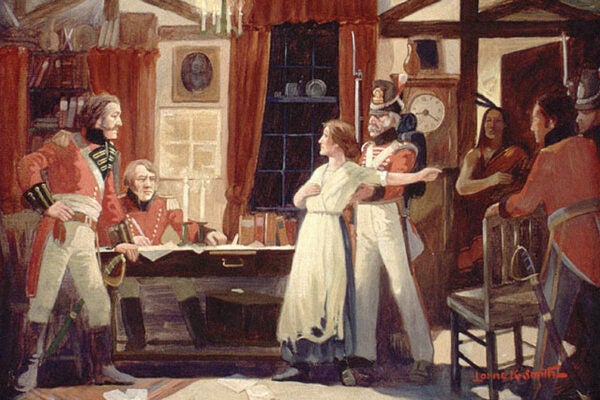The poinsettia, that quintessential plant of the winter holiday season, has some of its history written into its name. Joel Roberts Poinsett, the first United States minister to Mexico, took a fancy to the plant in 1828 and sent samples back home. In its native region, Euphorbia pulcherrima was used by the Aztecs for dyes and medicine. Spanish Catholicism made the connection to Christmas: the “flowers,” which are actually leaves, were said to be shaped like the Star of Bethlehem, with the red color representing the blood of Jesus.
Poinsett was a physician, botanist, and South Carolina Congressman before he was picked by John Adams to represent the United States in Mexico. He spoke Spanish and already had experience in Mexico, Chile, and Argentina. He’d also travelled widely in Europe, becoming one of the first Americans to see Moscow before it burned during the Napoleonic invasion in 1812. He was a firm believer in making every country emulate the U.S., a “flaming evangel of democracy” in the words of one of his biographers.
Which turned out to be a liability in a diplomat. Mexico had won its independence from Spain in 1821 after more than a decade of struggle. Poinsett was dispatched in 1825 to help settle the boundary issues of the day and spread his version of democracy. He promptly got into a fight with Lucas Alamán, the Mexican Minister of Foreign Affairs. Alamán was committed to remaking Mexico in the aristocratic British mold and holding off American designs on Texas and the Southwest.
Curt Lamar describes the animosity between Alamán and Poinsett as a “significant confrontation which would determine the tenor of Mexican-United States relations until the twentieth century.” Lamar hypothesizes that the animosity between the countries grew not out of “inherent hostility between the common people of each nation, but because of the respective personalities and ideologies of these two extraordinary men.” Their diplomatic encounter set the stage for the “mutual suspicion and hostility” between the countries that exploded in the Mexican-American War of 1846-1848 and lingered to the 1900s, if not to the present day.
Outmaneuvered by Alamán (who soon fell from power himself), and getting into trouble meddling in local affairs, Poinsett accomplished nothing diplomatically by the time he left Mexico in 1829. Except in the botanic field, of course.
It would be well over a century before Poinsett’s botanical gift became fully entrenched as a Christmas cliché in America. California growers grafted compact versions of the naturally weedy plant. More importantly, they learned to market it across the nation. Growers sent plants to television networks and got them in background of morning shows, helping to make the poinsettia famous. Now something like 34 million poinsettias are sold every year in the U.S., making up nearly a quarter of all potted plant sales. And while his name has been thus immortalized, most people have forgotten about Poinsett’s failure to secure a good relationship with our neighbor to the south.







